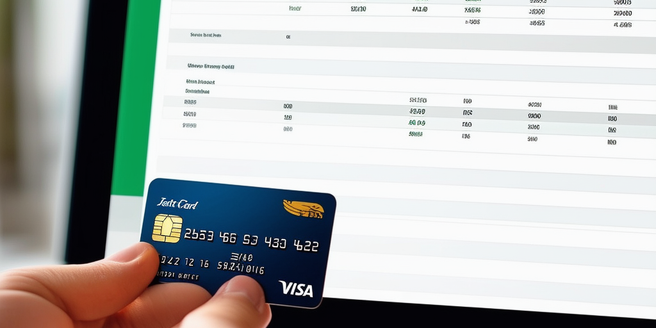
Understanding Credit Card Basics
When you use a credit card, you are borrowing money that you will pay back later. It’s crucial to understand this because the borrowed money is not free. Credit cards are a form of ‘revolving’ credit. This means that you have a set credit limit, and as you pay off your balance, your available credit increases. Unlike a loan, which is paid off over a fixed term, credit cards are ongoing. You can borrow and repay as much as you want, as long as you make the minimum repayments and don’t go over your credit limit. That said, unless you pay off your balance in full by the due date, you’ll be hit with interest.
The Importance of Financial Literacy in Credit Card Management
Managing a credit card effectively requires a thorough understanding of financial principles and budgeting skills. This includes concepts like interest rates, credit limits, minimum payments, late fees, etc., forming the foundation of disciplined and efficient credit card use. Not only does financial literacy enable you to navigate these complexities and make optimal decisions like avoiding unnecessary fees, but it also allows you to understand interest charges, encouraging prompt payments and minimizing debt. This in-depth awareness can help you dispute billing errors that could cost significantly, and as you become more proficient in financial matters, you can strategize to maximize credit card benefits without excessive spending. Ultimately, refining your financial skills leads to beneficial credit card and financial health management decisions, reducing the risk of debt, and enhancing your monetary wealth.
Practical Strategies for Credit Card Repayment
Repaying your credit card in full each month ensures you avoid paying interest. This is the most effective method to keep your expenses under control. Remember, interest is calculated daily, so the sooner you make a payment in the month, the less interest you’ll be charged. However, if you find yourself unable to pay the full amount, don’t worry; there are strategies you can use to minimize the impact. But if you can’t do this, aim to pay more than the minimum. Even small extra payments can make a big difference to how long it takes to pay off your debt, and how much interest you end up paying. You could also try moving your debt to a new credit card with a lower interest rate.
Avoiding Common Mistakes in Credit Card Repayment
Credit card repayments can be tricky with many card owners falling prey to common errors like providing only the minimum payment each month. While this avoids immediate penalty fees, it results in a ballooning balance from accumulated interest and delays financial independence, keeping you in constant debt. Similarly, ignoring due dates for repayments, often an underestimated importance, can lead to unnecessary late payment fees, disrupting a healthy repayment process and causing avoidable charges.
Age-old problem of spending more than one’s means is another pitfall that plunges consumers into a never-ending debt cycle. It’s crucial for users to recognize their financial boundaries and cultivate responsible spending practices to keep a check on out-of-control spending.
Being aware of these prevalent mistakes can assist consumers in avoiding them, fostering financial well-being and a debt-free lifestyle. This necessitates timely payments, preferably automatic, to steer clear of late payment fees. Although making at least the minimum payment is essential to dodge penalty fees, it should not become a habit. Dodging these errors consciously can lead you down a financially stable, debt-free path.
Continuing Your Financial Literacy Journey: Beyond Credit Card Repayment
Internalizing the understanding that financial education is a lifelong journey is crucial, as mastering one skill, like credit card repayment, doesn’t mean there isn’t more to learn. The scope of financial literacy is broad and always evolving, so continued learning is vital. Credit education is important, but don’t stop there; understand how fluctuation of interest rates can affect your savings. Extend your studies to investing, as diversifying your portfolio can optimize your financial growth by mitigating risks and capitalizing on various market sectors. The art of financial management continues to evolve with the economy, so staying informed on the latest trends is beneficial. After understanding credit card repayment, strive to expand your financial understanding rather than feeling complacent. Continually pursuing financial literacy will lead to financial enlightenment.
